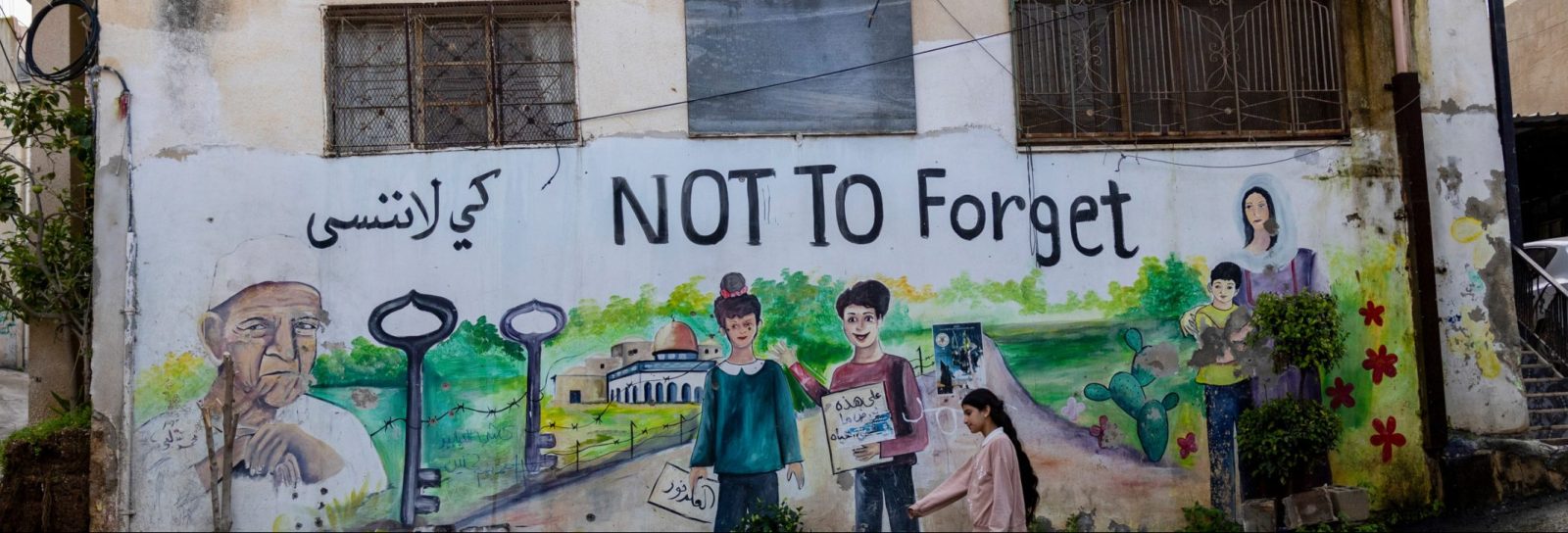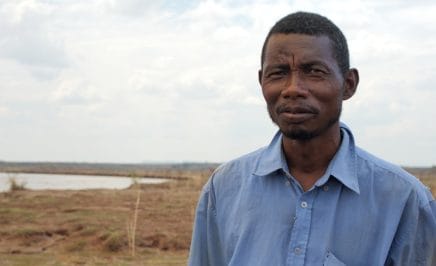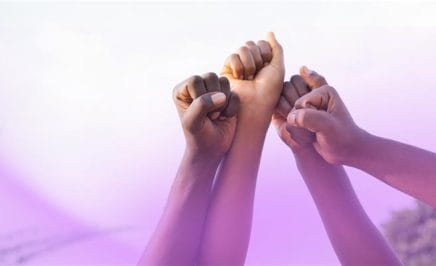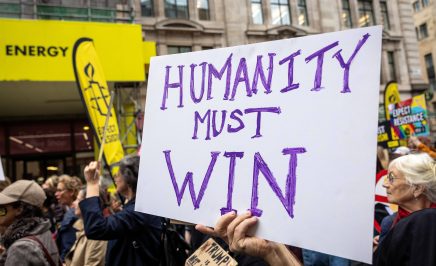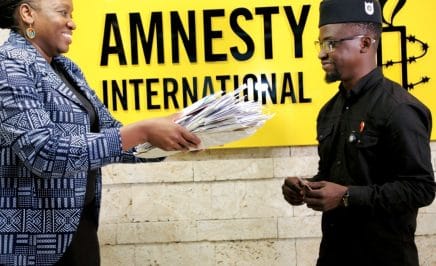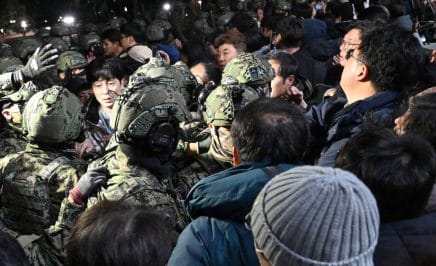We must listen to Palestinian voices and take action
The 15th of May marks the forced expulsion and displacement of 700,000 thousand Palestinians during the conflict that created the State of Israel in 1948. Since then, al Nakba (The Catastrophe), as it is known in Arabic, has been engraved in Palestinian collective consciousness as a story of relentless dispossession.
The crimes that were committed in 1948 draw haunting parallels to the action that Israeli forces have been committing in Palestine in since October 7, 2023. This year on the 77th anniversary of al Nakba we stand in solidarity with the Palestinian people.
Al Nakba and its legacy
During the 1948 Nakba, more than 530 towns and villages were destroyed with over 700,000 Palestinians displaced from their homes, villages and cities. Their homes have either been settled and renamed, or left in ruins. They’ve never received compensation for their losses, and have been denied the right to return.
Unfortunately, the atrocities of al Nakba weren’t isolated. Over the decades, Palestinian refugees have faced multiple waves of displacement, with some losing their homes several times. In 1967, some 300,000 Palestinians were displaced following Israel’s occupation of the Palestinian Territories – the West Bank, including East Jerusalem, and the Gaza Strip. Since then, tens of thousands of others in the Occupied Palestinian Territories (OPT) have been made homeless or forcibly displaced again because of Israel’s aggressive land-grabbing and illegal settlement policies, home demolitions and forced evictions.
With currently more than 7 million Palestinian refugees worldwide, Palestinians are one of the world’s largest refugee populations. In many countries, they face poverty and systematic human rights violations and most don’t have access to resettlement, which could alleviate their plight, particularly in places where their situation is precarious.
By establishing a system of apartheid, the Israeli authorities continue to deny Palestinian people their human rights. Under apartheid, Palestinian’s face continued forcible displacement. Entire Palestinian communities have been uprooted and hundreds of thousands of Palestinians’ homes have been demolished.
Since the outbreak of violence on 7 October, over 35,000 people have been killed. The collapse of the truce with Israel’s resumption of attacks on 18 March 2025, which have killed at least 2,325 people, including 820 children, shattered any semblance of hope for Palestinians in Gaza. In addition to blocking entry of all aid, Israel’s decision to cut power to Gaza’s main desalination plant on 9 March 2025 has further crippled access to clean water. The plant was the only facility in Gaza reconnected to Israel’s electricity grid in November 2024, after a full electricity blackout had been imposed since 11 October 2023.
Voices of Palestinians
Amnesty interviewed Palestinian people who currently live in Australia to understand their perspective on al Nakba and to learn about their impactful stories.
“The Nakba started in 1948 and over the last 75 years it actually hasn’t stopped. They’ve got no food, no shelter, no electricity, no oil, no gas, no medicine, and nowhere to go, nowhere to hide. It is like hell on earth for them right now.” Reem Borrows, Business Coach
“I came to Australia, I actually had no citizenship, it is extremely difficult for one to have ambitions and goals in life when you don’t even really know what sort of identity you have.”
“I’m a Palestinian. I’ve never been to Palestine. I’m a Palestinian. I can never go back to Palestine.” Humam Mahmoud – Palestinian Refugee
“It’s almost like Palestinians are looked at as second class human beings. It’s almost like our lives are not valued the same.” Humam Mahmoud – Palestinian Refugee
“The Nakba means that I’m basically a stateless person and I have nothing to go back to. It’s very difficult to put into words. And if I could say from an emotional perspective, it’s constantly living in a state of ‘qaher’, which means frustration, but it’s a different level of frustration.” Al-Shayma Nahya, Human Rights Lawyer
“There are survivors of the first Nakba that are saying we’re undergoing yet another one. It’s the second time that they’re displaced from their homes on foot, again, with nothing, just with whatever they can carry.” Diala El-Mahdi, Teacher
The Australian Government must protect Palestinians by all means
Amnesty International Australia vehemently rejects Israel’s proposal of forced displacement. Any attempt to weaponise humanitarian aid, coerce displacement, or create discriminatory aid zones is a gross violation of international law and must be instantly halted.
We must move from mere words to concrete actions. We demand the re-elected Labor Government, and the international community immediately act to restore the full, unhindered delivery of humanitarian aid and essential supplies, and urgently push for a permanent ceasefire.
What you can do
Here are some actions you can take to help protect Palestinians and ensure they can live in peace, free from violence. .
- Take action now by calling on calling on Australia’s Foreign Minister to stop fuelling Genocide in Gaza
- Sign the petition calling for the Government to not allow the export of any arms to Israel including arms parts
- Email your MP and urge them to call for a ceasefire now.
- Donate today to help people find safety.
Amnesty International is a global movement of more than 10 million people who take injustice personally. We are campaigning for a world where human rights are enjoyed by all – and we can only do it with your support.
Act now or learn more about our crisis response campaign.
